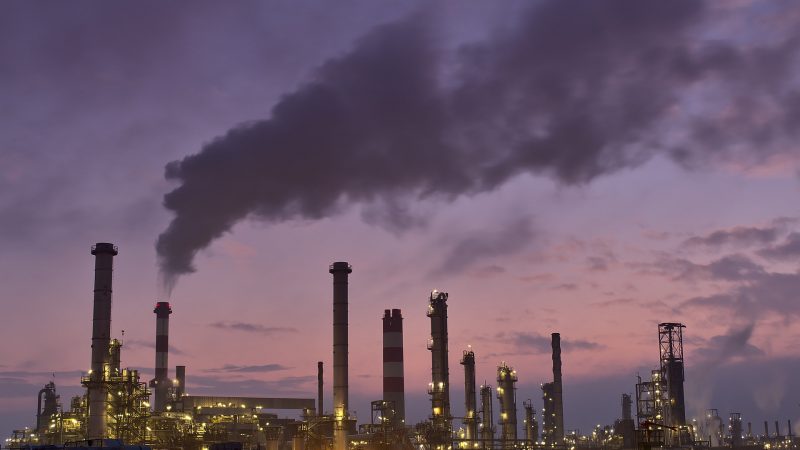The short term costs of reducing carbon emissions to net zero are high, but the alternative will cost us more.

Earlier this week a charity and right-wing think tank attracted criticism for its comments on carbon net zero.
Writing in Conservative Home, the media manager of The Institute of Economic Affairs called climate targets ‘arbitrary’ and criticised them on the grounds of cost to individuals and families.
The piece stated: “It has been argued that the Government should be honest about the costs of Net Zero and the impact it will have on our lives. As the media catches on, politicians and the green lobby can no longer shield the truth from the public.
“People are unlikely to take kindly to a dramatic, government-imposed reduction in their living standards and hikes to their cost of living.”
But while the cost of reaching net zero is likely to be high, the cost of not reaching will be much higher.
In a report into fiscal risk published in July 2021, the Office for Budget Responsibility quoted the independent adviser on tackling climate change, Climate Change Committee, as estimating that the cumulative investment and operating cost for reducing net emissions to zero by 2050 in the UK at £1.4 trillion in real terms.
This seems like an impossibly large amount of money – but most of the money is earmarked for investment in green infrastructure, which will begin to save money over time.
For example, although initial investment costs for surface transport is high, the transition to net zero is expected to result in savings from 2030 onwards due to the reduced running cost of electric vehicles.
The initial investment cost for vehicles is expected to be around £332 billion, but the savings are estimated to be around £684 billion, making a net saving of £352 billion.
Savings are not expected to be as high in other areas – but significant money can be saved by net zero power and buildings.
The report also highlighted the possibility of the UK making money from investments in green technology, if the country chose to adopt them early.
The cost of failing to get climate change under control on the other hand would be much larger.
Rising temperatures have the potential to seriously damage the economy. Hot weather can lower crop yield and reduce the productivity of the workforce.
A study published in the scientific journal Nature estimated that productivity peaks at an average annual temperature of around 13°C. In the extreme that average temperatures rise by 4°C by 2100 the average level of per capita global GDP in 2100 would fall by 23%.
Adapting our infrastructure to hotter weather and heavier rainfall would also be costly, if left to play catch up.
These would not be the only economic concerns. As well as rising temperatures, the climate crisis is likely to trigger catastrophic events around the world – which small open economies like the UK would not be insulated from. Resource scarcity could lead to mass migration and conflict, which would affect supply chains.
According to the Fiscal Risks Report, the cost of adapting to an ever hotter climate and of more frequent and more costly economic shocks could lead to debt spiralling up to around 290% of GDP.
They estimate, on the other had, a cost of 0.4% of GDP to the government per year until 2050, in order to reach net zero.
The short term costs of reducing carbon emissions to net zero are high, but the alternative will cost us more.
Alexandra Warren is a freelance journalist.
Left Foot Forward doesn't have the backing of big business or billionaires. We rely on the kind and generous support of ordinary people like you.
You can support hard-hitting journalism that holds the right to account, provides a forum for debate among progressives, and covers the stories the rest of the media ignore. Donate today.



